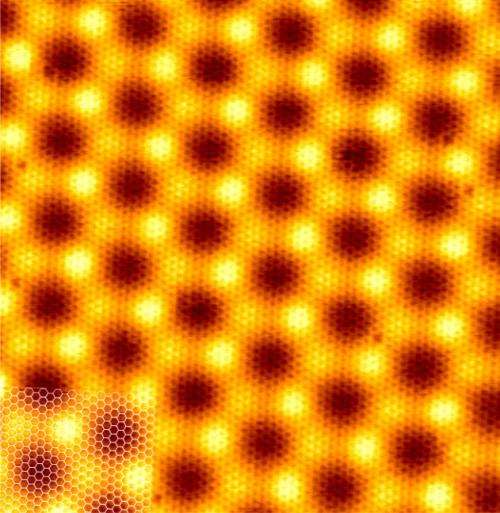May 19, 2014 report
Best of Last Week – Tricking the uncertainty principle, how brains work during mediation and bad news for resveratrol

(Phys.org) —It's been an exciting week in physics, first, scientists discovered how to turn light into matter after 80-year quest at Imperial College in London—turns out, Breit and Wheeler were right when they suggested back in 1934 that all it would take would be smashing two photons together. Another team of physicists showed unlimited heat conduction in graphene—they've demonstrated via simulations and experiments that the temperature conductivity of graphene deviates depending on the size of samples. Also, a team of researchers at CalTech has found a way of tricking the uncertainty principle—taking measurements that go beyond the limits imposed by quantum physics. And in a spectacular feat of applied physics, a one-nm-thick graphene engine mimicking a two-stroke engine has been developed by a team of researchers at the National University of Singapore. Instead of a piston, a spot on a sheet of graphene is heated till it blisters, then is allowed to cool so it goes flat again—over and over.
In the biological sciences, a team of neuroscientists showed how the brain works during meditation, and it apparently does so in different ways depending on which type of meditation you're doing. Another team has found the brain's response to sexual images is linked to the number of sexual partners. It seems the more real-world sexual encounters with different people a person has, the more strongly they react to sexual imagery—a find that just might cause advertisers to react.
It's also been a good week for technology as researchers developed an ultra-fast bionic arm that can catch objects on the fly. It sits there waiting, then reacts in less than a second, manipulating its parts to allow it to catch all manner of objects, from tennis rackets to soda bottles. Very impressive. Also, Power Japan Plus announced a dual carbon battery that charges 20 times faster than current lithium ion batteries—it's made mostly of carbon grown from cotton fibers and doesn't overheat. Maybe electric cars will be the wave of the future after all. And speaking of the future, operation of the longest superconducting cable worldwide started—engineers in Essen, Germany are laying down the cable between two power transformers in the city, it transports five times more power than conventional lines and is far more efficient.
And finally, sadly, it appears that drinking wine and eating chocolate won't keep you alive longer as diets rich in antioxidant resveratrol fail to reduce deaths, heart disease or cancer—the study by a team at John's Hopkins University found that anecdotal evidence of health benefits from the chemical were completely misguided. Sad, very sad indeed.
© 2014 Phys.org





















